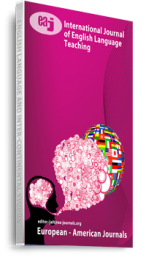This study investigated the effect of a proposed strategy-based writing model on Saudi EFL students’ writing skills. Out of three classes from Al-kuds School, two male third-year intermediate classes were randomly assigned into the control group (N=32) or experimental group (N=33). Class (B), serving as a control group, were taught the course-book “Say It in English” in the traditional method, while Class (C), serving as an experimental group, were taught the same course-book, supplemented with the strategy-based writing model which included six types of strategies: cognitive, meta-cognitive, compensational, social, affective and multiple strategies. Both groups were pre-post tested using a writing test prepared by the researcher. Two hypotheses were formulated and tested. Results obtained from T-test revealed that the strategy-based writing model was effective in enhancing the participants’ writing skills. In addition, compared to the traditional instruction, the strategy-based writing model was more effective in improving the participants’ writing skills. These results adduce the importance of implementing the strategy-based writing model in EFL classrooms as it enabled the participants to conceive writing as a recursive process which entails flexible and purposeful movement through the three stages of writing.
Keywords: Approaches to Writing Instruction, Strategy Instruction, Strategy-Based Writing Model, Writing Skills, Writing Strategies

